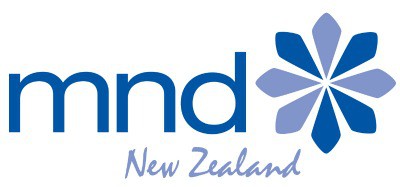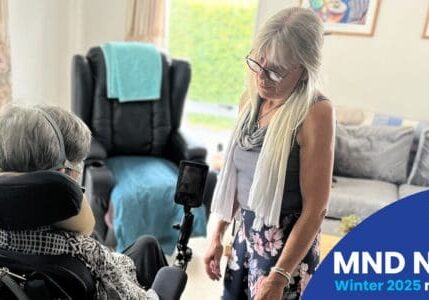Response to new research on higher rates of MND in New Zealand
Research
28 November 2018

MND NZ welcomes research into the prevalence of motor neurone disease as we work to better understand this disease in the hope to one day find a cure. The Global Burden of Disease (GBD) study released this week suggests rates in New Zealand may be higher than elsewhere in the world.
We plan to meet with the researchers soon to gain a better understanding of the report’s finding and its implications, in the meantime we’ve spoken to our neurologist clinical advisor, Dr Andrew Chancellor, and MND researcher at the Centre for Brain Research Dr Emma Scotter to provide some further information to consider in relation to the study’s findings.
They provided some definitions:
Motor Neuron Disease: Usually understood to mean the group of diseases affecting the upper and/or lower motor neurons that comprises; amyotrophic lateral sclerosis, primary lateral sclerosis, progressive muscular atrophy, and progressive bulbar palsy.
The GBD study also included spinal muscular atrophy, hereditary spastic paraplegia, and pseudobulbar palsy, making it a study of motor neuron diseases, plural.
Incidence rate: The number of people (per 100,000 people) who receive a new diagnosis of a particular disease or in this case diseases, in a given year.
Mortality rate: The number of people (per 100,000) who die in one year of a given cause, in this case any of the named motor neuron diseases. Mortality rates depend upon both how long people live with a disease and the incidence rate of that disease.
And provided commentary on the major media messages:
Message 1: That NZ has the highest mortality rate from MNDs in the world, a rate five times the global average.
- NZ does seem to have a high mortality rate of MND and MNDs, according to this and other studies, although not ‘shockingly’ high compared to countries with similar healthcare systems. Indeed, the differences in mortality in this study are slight (5%) and may not be truly (significantly) different from Australia and the UK.
- Higher mortality may mean higher incidence – it does not mean poorer care or diagnostic rate in New Zealand.
Message 2: That our high mortality rate from MNDs is due to a shortage of neurologists. Early diagnosis would slow progression and thus reduce mortality.
- The reasons for slight variations in worldwide mortality between countries with similar healthcare systems are not understood – they are almost certainly not due to lack of neurologists. In fact, the opposite may be true and perhaps NZ neurologists make the diagnosis more readily than elsewhere, hence the higher reporting rates.
- NZ does have fewer neurologists per head of population than many other Western countries however MNDs are a priority presentation for neurologists, NZ wide. If a patient develops weakness and wasting of muscle or progressive speech changes they are seen promptly for evaluation and assistance.
- While we appreciate the concern for improved access to specialist neurology services, expediting the diagnosis of MND is unlikely to increase life-expectancy, due to the lack of effective treatments.
- Once the diagnosis is firmly established, much of the care of patients with MND is from a team of allied health professionals whose multi-disciplinary team approach improves quality of life, and possibly length of life.
At the time of writing, MND New Zealand provide support to 350 people living with MND and their families nationwide. We also provide support to a small number of people and their families who are working through the diagnostic process.
For further information on MND in New Zealand please go to our Facts about MND page or Contact Us at any time.


